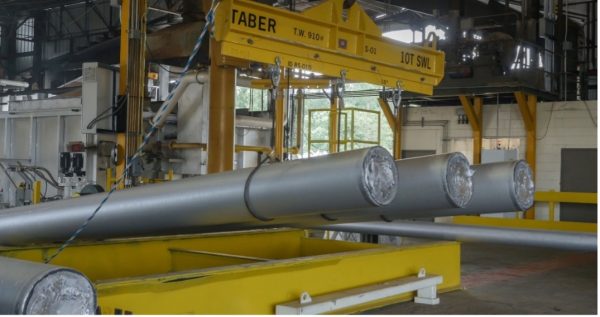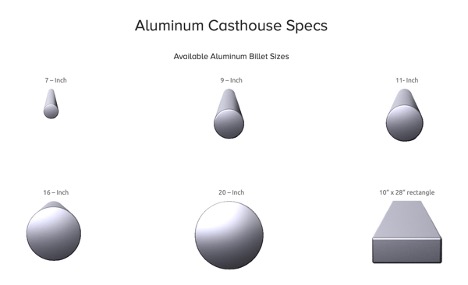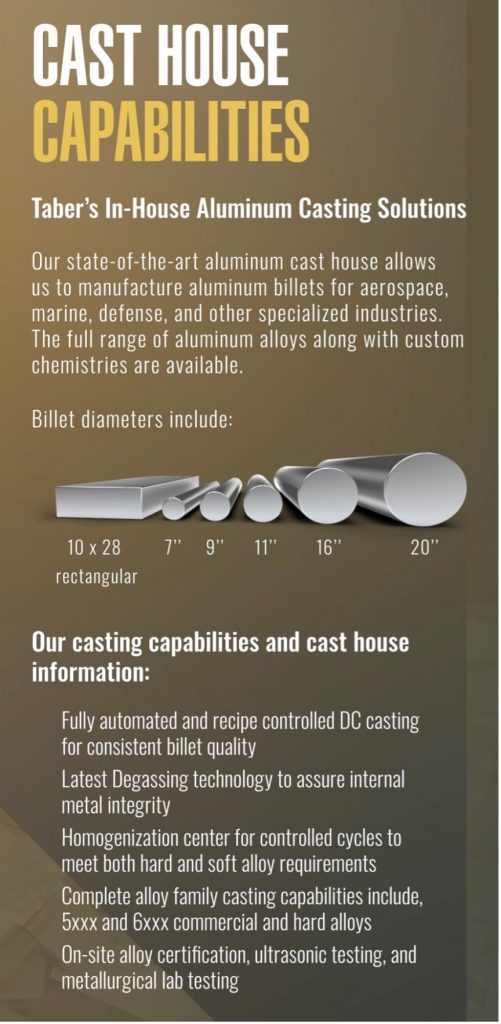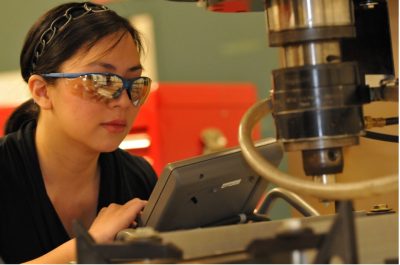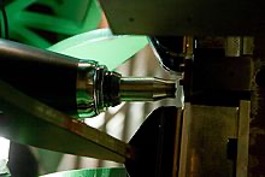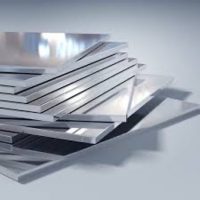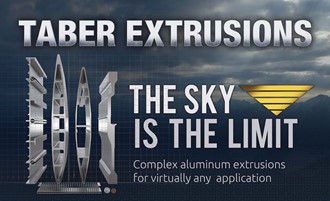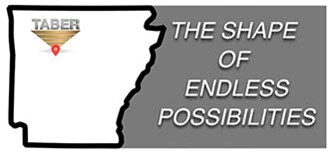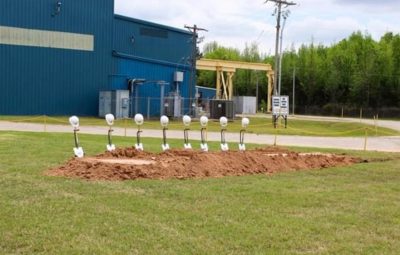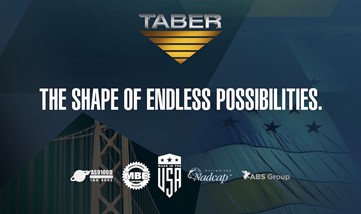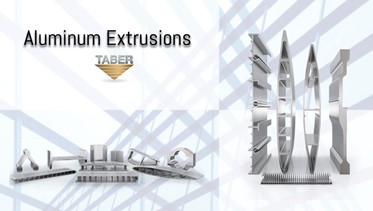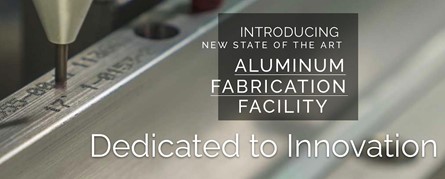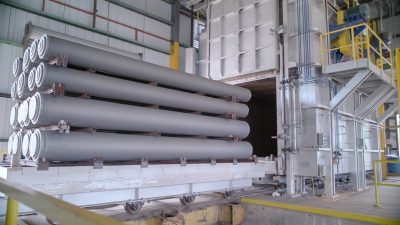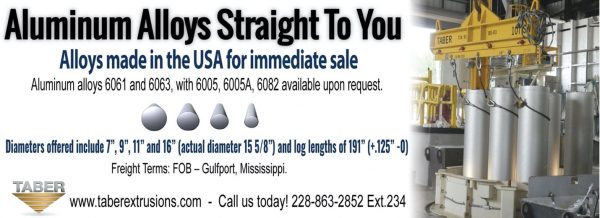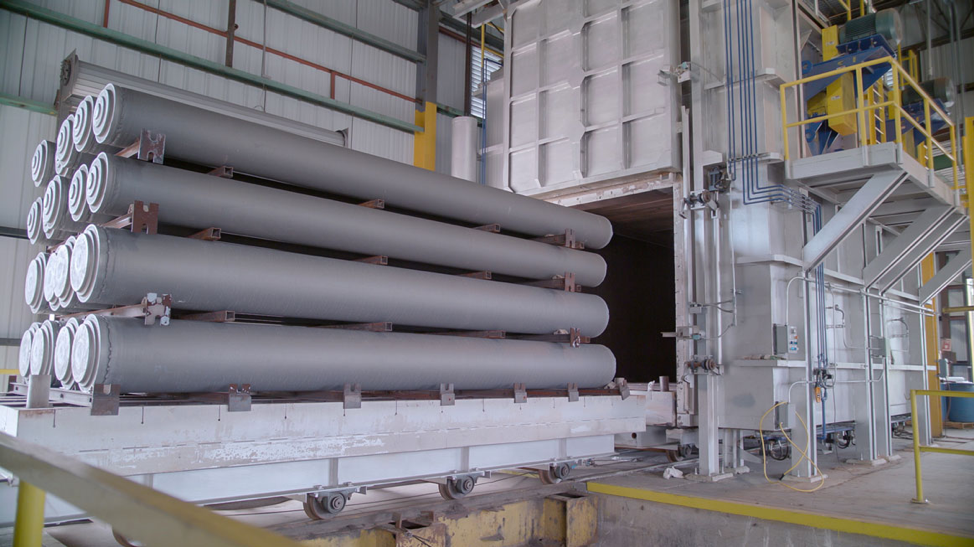Hard Alloy Aluminum Extrusion Manufacturing: The Technology of Hard Metals
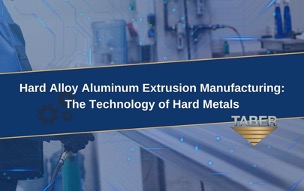
Aluminum’s versatility and prevalence have made it a staple in various industries globally. Its numerous benefits position it as a favored material choice. Join us as we delve into hard alloy aluminum extrusion manufacturing — a cutting-edge method that enhances aluminum’s mechanical properties and expands its range of applications.
Recognizing aluminum
Despite being plentiful in the Earth’s crust, aluminum is rarely found in its pure form. Various forms of aluminum and its alloys are esteemed for their high strength-to-weight ratio, low density, corrosion resistance, and durability. Aluminum’s low density makes it an ideal lightweight alternative to steel, being 2.5 times less dense and favorable for applications needing portability.
Many aluminum alloys are malleable and ductile, making them effortless to machine and form. They possess excellent electrical and thermal conductivity while lacking magnetic and sparking properties. Recycling aluminum is possible due to its low re-melting temperature, which requires only 5% of the energy used in primary metal production. It also maintains its properties after multiple recycling cycles, up to 75%, highlighting its sustainability.

What are aluminum grades?
Aluminum alloys are created by blending pure aluminum with various alloying elements to modify their mechanical properties, corrosion resistance, formability, and machinability. The Aluminum Association classifies and maintains the different grades of aluminum based on their composition and how they respond to mechanical and thermal treatment.
Wrought and cast are the two categories of aluminum alloys. Mechanical processes are employed like forging, bending, and rolling to shape wrought aluminum alloys. In contrast, cast aluminum alloys are formed by melting and pouring into molds to create specific shapes. Both types of aluminum alloys have their unique properties and applications. Wrought aluminum is worked in solid form, while cast aluminum is melted and poured into a mold.
Let’s dive deeper into wrought aluminum!
Wrought aluminum possesses remarkable strength, and people can mold it into various shapes. The grade’s composition is achieved by melting aluminum ingots with a measured quantity of alloying metal. Rolling, forging, or extruding transforms the melted aluminum alloy into billets or slabs. Heat treatment is applied further to enhance the natural properties of the aluminum alloy.
Each wrought aluminum grade is assigned a unique four-digit number code:
- To modify pure aluminum, you add the primary alloying element, represented by the first digit. The primary alloying element impacts the grade’s properties in a sequence.
- The second digit denotes the alloy modification and requires specific documentation using IADS. If the number assigned is zero, the alloy is either unmodified or in its original state.
- The third and fourth digits are random numbers in the sequence assigned to a specific alloy. For the 1000 series, these digits represent the alloy’s purity.
We can divide aluminum grades into several categories. The purest form of aluminum with the lowest yield and tensile strength belongs to the 1000 series. On the other hand, the 7000 series comprises alloys of magnesium, zinc, and copper and has the highest tensile and yield strength.
Soft Alloys
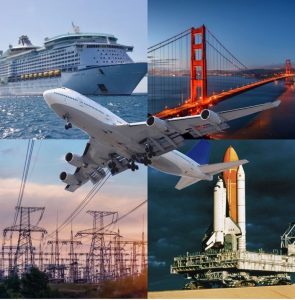
1000 Series
Aluminum is a metal that can be very pure, with a grade of 99% or higher. There are different types of aluminum alloys, and one of them is called the 1xxx series. These alloys are good at resisting damage from rust and can carry heat and electricity well. Electric transformers and power grids often utilize them.
3000 Series
3xxx series aluminum alloys are a type of metal often used for various purposes because they have a good balance of strength and flexibility. Manufacturers add manganese to create these alloys, granting them unique properties.
6000 Series
The 6xxx series of aluminum alloys is a versatile and robust material with many construction and architectural uses. They can be heated and welded to fit different shapes and designs and are known for their ability to resist rust and wear over time. Perfect for many construction and architectural designs.
Hard Alloys
2000 Series
The material becomes very strong and tough when copper is mixed with aluminum to create 2xxx series aluminum alloys. Another exciting thing about this alloy is its strength can increase even more by applying heat treatment.
5000 Series
The 5xxx series is a type of material that is made stronger by adding magnesium to it. It can be welded easily and is resistant to rusting, especially in places with a lot of saltwater, like the ocean. People often use it to construct boats, shipping containers, and other structures exposed to salty and wet environments.
7000 Series
Various sectors, such as aerospace, utilize aluminum alloys for their operations. One type of alloy, the 7xxx series, is solid and can withstand harsh weather conditions. This alloy adds elements like zinc, magnesium, copper, and chromium.
The best aluminum extruder can offer high-quality aluminum extrusions that meet specific requirements.
Aluminum casthouse technology has come a long way, and choosing an extruder that uses the latest technology to produce top-quality aluminum extrusions is essential. To get the most out of this versatile material, you must rely on a reputable American aluminum extrusion company that is an expert in hard alloy aluminum extrusion manufacturing like Taber Extrusions.
With their state-of-the-art extrusion process, Taber can create custom aluminum shapes that meet their customers’ specifications. This high level of precision guarantees the result’s optimal performance and superior quality. Whether you need wrought aluminum for structural applications or intricate parts, leading hard alloy aluminum extrusion manufacturer, Taber, has the expertise and technology to deliver top-notch products consistently.
Comprehensive extrusion services by Taber
Taber offers a wide range of extrusion capabilities in all standard alloy series. They can extrude 2000, 5000, 6000, and 7000 series, and if you need something different, ask! They’ll even consider extruding in 1000 and 3000-series alloys upon request. Also, Taber uses recycled and prime aluminum to cast their extrusion ingots to meet the highest quality specifications. The ingots come in a range of diameters from 8” to 20” and rectangular sizes, too!
Taber offers various customized processing services to meet its clients’ needs. From billet casting at its Gulfport, MS plant to solution heat treatment, stretcher/detwister, cut-to-length, custom packaging, fabrication, statistical process control, quality assurance, and artificial aging ovens, it has the equipment and expertise to deliver high-quality and customized aluminum extrusion products.
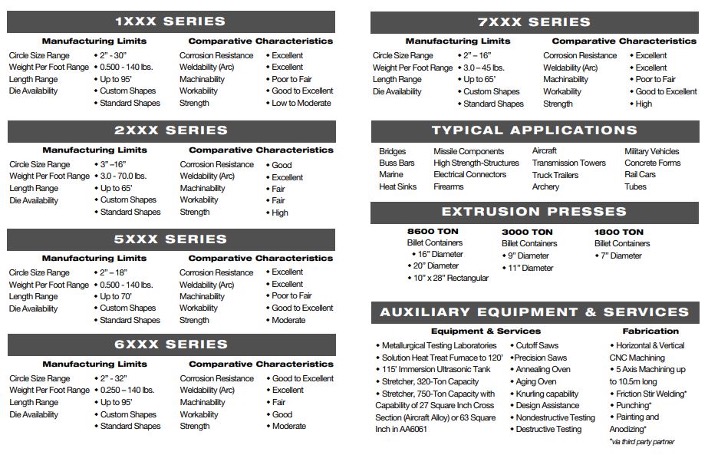
Precision engineering and quality assurance
A leading extrusion company needs a leading team of experts as well. Taber has a team of engineers who can assist with the extrusion design using SolidWorks (CAD Design) and CAD Software (Auto CAD). It can ensure that the extrusions meet the tolerances in ASTM, AA, ANSI, DIN, or EN standards.
They are also certified and approved by several international and industry standards, such as ISO 9001:2008, AS 9100C, EN/JISQ 9100:2009, BABA, and ABS. Taber has the ABS Quality Assurance Program Certification #ALML 1320275 and the ABS approval to produce extruded aluminum alloy products for marine applications, such as 5083 H111, 5086 H111, 6061 T6, and 6082 T6, with a maximum thickness/diameter of 130 mm. Various sectors widely use Taber’s products, including aerospace, defense, transportation, energy, and industrial.
Leading the way in aluminum extrusion with state-of-the-art technology and commitment to quality
Taber stands out as a premiere provider of aluminum extrusion products in the United States, offering exceptional service and innovative solutions that meet the unique needs and expectations of customers while ensuring cost-effectiveness and quality. With vast experience, advanced equipment, and a commitment to excellence, they guarantee customer satisfaction and are the ideal partner for any aluminum project, regardless of size.
So, if you want to take your business to the next level, get a quote now with Taber, a premier hard alloy aluminum extrusion manufacturer. Their team of experts will work with you every step of the way to ensure your success. Don’t wait any longer; contact Taber today to experience the best aluminum extrusion products and services!
More about Taber Extrusions
Taber is a company that strongly believes in shaping customers’ dreams. They provide a comprehensive range of aluminum extrusion capabilities and value-added services, which enable them to become a complete partner throughout the entire process, from the design stage to the delivery of the final product.
Since its establishment in 1973, Taber has been committed to earning a top reputation in the industry by working closely with its customers, promoting innovation, and collaborating to find solutions to any challenges. Over the past four decades, they have become well-known for their highest standards of quality and responsiveness, and they are proud to hold the title of having the most extensive capabilities in the aluminum extrusion industry.
If you’d like to explore more of Taber Extrusion’s aluminum extrusion blogs, visit taberextrusions.com and follow them on social media so you can receive new blog alerts!

